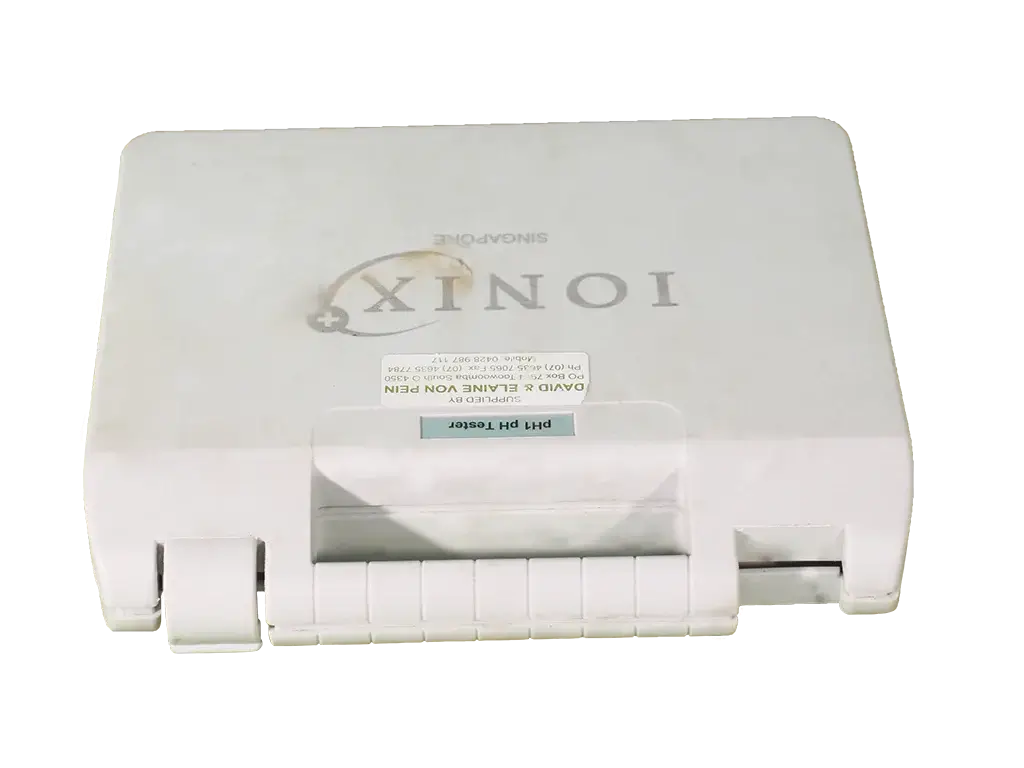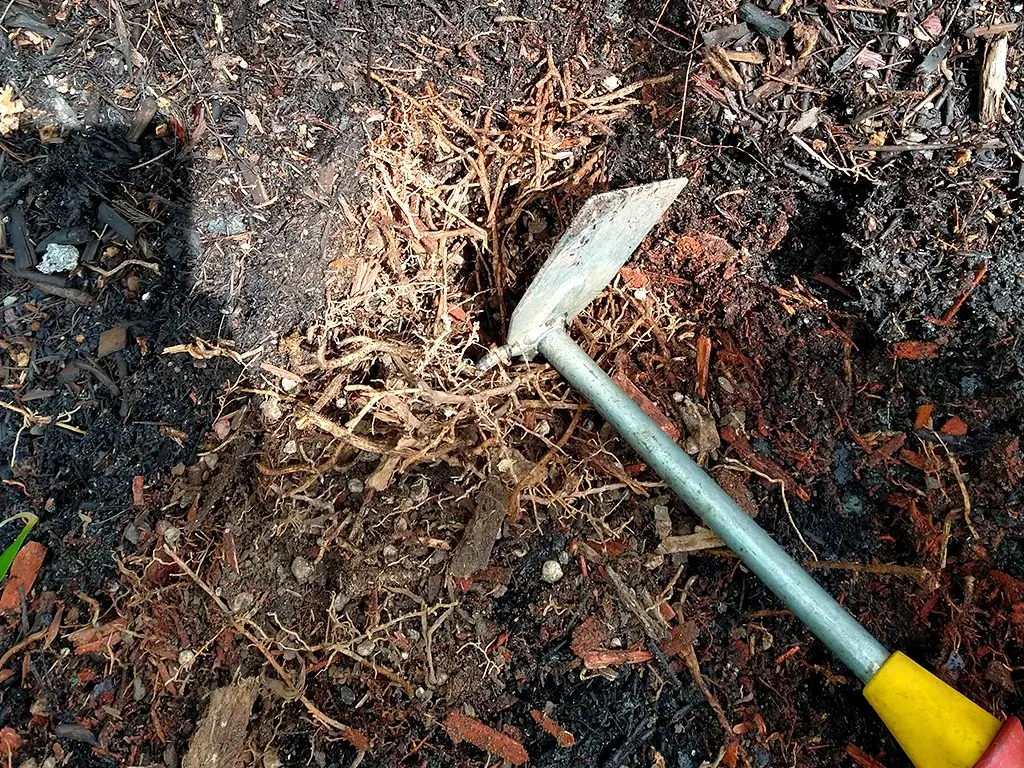Our Environmental Analysis Laboratories (EAL) Testing Suites offer a comprehensive suite of diagnostic tests that analyse soil, plant tissue, and water quality. This data-driven approach allows us to assess key environmental factors influencing plant health, such as nutrient levels, soil composition, salinity, and contamination. These insights guide the development of precise fertilization and irrigation strategies, ensuring that your landscape has the ideal conditions for growth. Our EAL Testing Suites are essential for anyone looking to optimize the health of their soil, improve plant vitality, or address environmental stressors.
Soil Testing
Testing for soil minerals is an essential practice in agriculture, horticulture and landscaping for several important reasons. Soil is at the very foundation of plant health where its mineral content plays a critical role in the growth, development and overall health of plants. This breakdown explains why testing the soil is such a vital step in maintaining the health of plant life.




Better Nutrient Management
Optimize Fertilizer Use
Soil mineral tests help identify which nutrients are abundant and which are deficient in the soil. This allows you to apply fertilizers more effectively, targeting only the nutrients that are needed which not only benefits the plants health but also saves you money. Over-fertilizing with unnecessary nutrients can lead to waste, pollution, and potential harm to plants.
Avoid Over-application
Excess nutrients such as nitrogen, phosphorus and potassium can harm plants, which could lead to further nutrient imbalances in the soil or even contaminate the groundwater. Testing helps to prevent this by ensuring that you only add the necessary amount of fertilizer.
Improve Plant Growth and Health
Correct Nutrient Deficiencies
Different plants require specific minerals in different amounts. For example, leafy vegetables like spinach need more nitrogen, while fruiting plants like tomatoes benefit from higher potassium levels. By testing soil minerals, you can adjust the nutrient mix to promote better growth, higher yields, and healthier plants.
Prevent Toxicity
Some minerals, like aluminium, boron, or manganese, can become toxic to plants if present in excessive quantities. Soil tests can identify the levels of potentially harmful minerals, allowing you to make adjustments before plants are negatively affected.
Improve Plant Growth and Health
Correct Nutrient Deficiencies
Different plants require specific minerals in different amounts. For example, leafy vegetables like spinach need more nitrogen, while fruiting plants like tomatoes benefit from higher potassium levels. By testing soil minerals, you can adjust the nutrient mix to promote better growth, higher yields, and healthier plants.
Prevent Toxicity
Some minerals, like aluminium, boron, or manganese, can become toxic to plants if present in excessive quantities. Soil tests can identify the levels of potentially harmful minerals, allowing you to make adjustments before plants are negatively affected.
Soil pH and Mineral Availability
Impact of pH on Nutrient Availability
Soil pH significantly affects how well plants can access certain minerals. For instance, nutrients like iron, magnesium, and phosphorus become less available in very acidic or very alkaline soils. Testing the soil pH along with mineral levels gives a complete picture of soil health and how well minerals are being made available to plants.
Correct pH for Specific Plants
Some plants prefer acidic soils (like blueberries), while others thrive in more alkaline conditions (like lavender). Soil tests help determine if adjustments (like adding lime to raise pH or sulphur to lower pH) are necessary to optimize growing conditions.
Enhance Soil Structure and Fertility
Understanding Soil Composition
Soil tests often include analysis of the soil’s texture (sand, silt, clay), organic matter, and cation exchange capacity (CEC), all of which influence how minerals are held in the soil and made available to plants. This helps to assess soil fertility and informs decisions about adding organic matter, compost, or soil amendments.
Long-Term Soil Health
Regular soil testing can track changes in soil fertility over time which helps to maintain soil health and prevent nutrient depletion. This is particularly important in commercial farming or for growing high-maintenance crops.
Customising Soil Amendments
Precise Amendment Application
Based on the results of soil tests, you can apply targeted amendments to improve specific mineral levels or address deficiencies. This can include adding lime to adjust pH, adding compost or manure for organic matter or applying specific mineral amendments like gypsum, potassium sulphate or iron sulphate.
Tailored Recommendations
Soil tests provide you with the information needed to develop a soil fertility program customized to your specific soil conditions, crop requirements, and environmental factors.
Prevent Soil Erosion and Leaching
Sustainable Fertiliser Practices
By knowing the precise mineral composition of your soil, you can reduce the need for excessive chemical fertilizers, which not only lowers costs but also helps prevent nutrient leaching (where minerals wash away with rainfall) and erosion. This protects both your plants and the surrounding environment.
Economic Benefits
Cost-Effective Farming
Testing for soil minerals reduces the guesswork involved in fertilization, leading to cost savings in fertilizer and improved crop yields. By ensuring that plants receive the right nutrients in the correct quantities, you maximize productivity while minimizing input costs.
Increase Yield and Profitability
For farmers and gardeners, optimal soil mineral levels are directly correlated with better yields, higher-quality produce, and more efficient use of resources, ultimately enhancing profitability.
Environmental Protection
Preventing Pollution
Fertilizer runoff can contribute to water pollution, particularly in urban or agricultural areas. By using soil test results to avoid excess fertilizer use, you reduce the risk of contaminating local water systems with nutrients like nitrogen and phosphorus, which can cause eutrophication and harm aquatic ecosystems.
Sustainability
Soil testing is a key tool in sustainable land management. By maintaining balanced soil mineral levels, you ensure the long-term health and productivity of the land, avoiding practices that could lead to soil degradation or depletion of vital nutrients.
Early Detection of Soil Problems
Identify Toxic or Deficient Conditions
Soil tests can uncover specific mineral imbalances (such as high sodium, iron, or potassium) that might be undetectable through visual symptoms in plants. Addressing these issues early can prevent long-term damage to your plants or soil.
Track Soil Changes
Regular testing can also reveal trends over time, such as the depletion of essential minerals or the accumulation of harmful ones, allowing you to take preventive action before these issues impact your plants.
Better Crop Selection
Adapt to Soil Conditions
Knowing the specific mineral content and soil properties helps you select the right crops for your land. Some crops are more suited to certain soil types (e.g., acidic vs. alkaline), and understanding your soil’s mineral profile can help you choose the most appropriate varieties for your area.
Maximize Productivity
If you’re planning to grow a diverse range of crops, soil testing will allow you to adjust mineral levels to meet the specific needs of each plant species.
